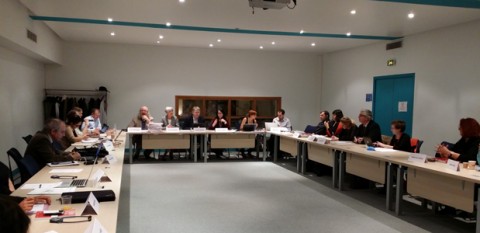
The Scientific Committee met on the 30th October to examine the 450 proposals that have been received for the Conference and the Forum. The full-day meeting, which was held at the Palais de la Découverte in Paris, also gave us the opportunity to establish an overview of Science & You.
A great many members of the Scientific Committee were present for this key stage for Science & You: selecting the communications and projects which will make up what is going to be a great event in the field of scientific, technical and industrial culture. The selection process was accompanied by much discussion, not over the quality of the proposals, but about how to best represent the great variety of profiles, viewpoints and scientific communication techniques.
All in all, almost 350 communications have been proposed for the conference, and more than 100 projects presented for the forum, coming from over 60 different countries. The tone is set: Science & You will definitely be an event on an international scale, fulfilling the promise of the 2012 edition of the Journées Hubert Curien on science communication. Some trends are emerging: the participation of numerous practitioners of science communication (cooperation of museum institutions, science centres, cultural and popular education associations…), facing great theorists of the field, promises us an exciting confrontation of points of view and visions of scientific, technical and industrial culture, today and tomorrow.
The wide variety of countries proposals have been sent from also augurs well for the quality of the discussions: answers to the call for participation show Asian, African and South American countries, together with Eastern European countries and Russia to be well-represented, which is part of the originality of Science & You. Bernard Schiele, President of the 2012 Journées Hubert Curien, emphasises that the call has spread beyond French and European borders to open up this opportunity for encounters to countries which are normally underrepresented in European conferences on science communication.
Authors of the projects selected will be contacted individually by email in early November.
